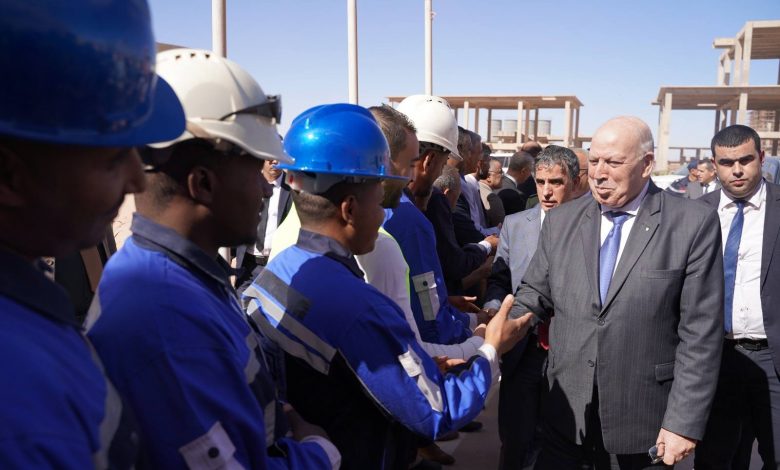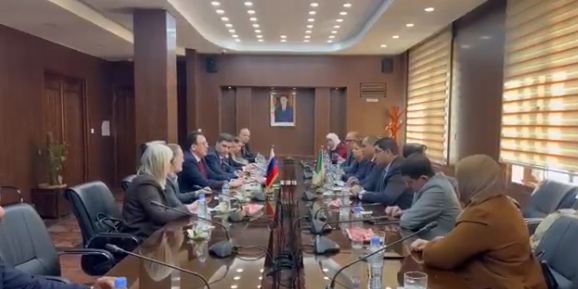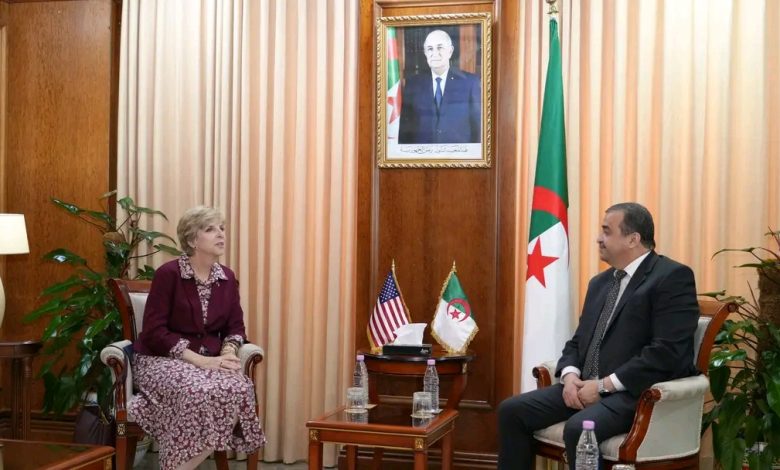| Discover Algeria | About us | Press area | Contact |
Make the Trans-Saharan road a corridor of economic growth

Intervening on the occasion of a study day on the Trans-Saharan Road organized by the CNESE and the Liaison Committee of the Trans-Saharan Road (CLRT), Mr. Tir has emphasized the interest of concretizing the project of the Trans-Saharan Road in particular Through the creation of an economic corridor between the member countries of this project, vector, he said, of regional integration and intra-African business development.
"For this reason, the member countries of the Trans-Saharan Route are called upon to launch a debate to promote this strategic route in a corridor becoming a real engine of economic growth and development in Africa", pleaded Mr. Tir, noting the opportunity. Offered by the implementation of the African Free Trade Area (ZLECAF) offering "a new breath" for the Trans-Saharan Road.
In the presence of the Secretaries General of several ministerial departments and diplomatic representatives of the CLRT (Tunisia, Mali, Niger, Niger, Tunisia, Niger, Niger, Niger, Tunisia and Nigeria), the CNESE President stated that the opening to an even larger number of African countries will allow to increase the volume of trade and will attract more investments.
Recalling that "this ambition is in line with the objectives of the African Union and the support strategies of international development partners", Mr. Tir has estimated for the member countries of the Trans-Saharan Road to achieve this goal, to take Some measures including the establishment of a strategic agreement defining a collaborative mechanism and a sustainable management system.
It also cited the interest of creating an economic forum annually joining the leaders of companies and politicians of the six member countries to discuss the economic and commercial issues of the region, also proposing the creation of a Mixed business consulting gathering chambers of commerce and industry and similar institutions in member countries with the aim of coordinating the consultation between the members of the actions aimed at the development of the various economic sectors of the region.
For its part, the Secretary General of the CLRT, Mohamed Ayadi, recalled that in 2009, the Committee had launched a study on the potential of trade between the member countries, whose "still relevant" recommendations focused on The establishment of a corridor system and the creation of a common authority responsible for supporting and promoting trade between CLRT countries.
"The project of the Trans-Saharan Road is physically mature for the realization of objectives, namely, the acceleration of trade between members for greater regional integration".
A progress rate of more than 90%
Mr.Arayadi also highlighted the advancement rate, over 90%, from the Trans-Saharan Road to be 9,000 km balancies over 9900 km of total linear. In addition, the six member countries account for 27% of the continent's GDP and 25% of its population.
For its part, the expert and Professor Nacenane, pointed out that the Trans-Saharan Road is a project considered one of the most structuring of the continent that NEPAD retained as a flagship project.
"This project is also essential because the continent is heading in all its regions towards a corridor approach. There is the Maputo corridor (Mozambique), that of Beira (Mozambique) and the most recent connecting Addis Ababa (Ethiopia At the port of Monbasa (Kenya) via Nairobi, "Listed Mr. Balenane.
In addition, he noted at the global level, a redistribution of the chains of value making them more "regionalized and closer to the consumer".
In addition, the CNESE member, Sofiane Mazari, pointed out that the Trans-Saharan Road connects six countries in three of the eight economic communities on the continent.
He indicated that the expected results of a Trans-Saharan corridor reside in increasing land trade and reducing transportation costs, noting the lack of development of intra-African trade in the light of existing potential.
"By generating economies of scale, competitive corridors enable the countries concerned to provide high-capacity transportation services that reduce transportation costs and delays, minimizing global trade costs," he explained .
In addition, Mr. Mazari felt that a Trans-Saharan corridor offers a new perspective in Chad, Mali and Niger allowing them to access Tunisian ports and large capacity of large capacity, also quoting the next commissioning of the Port Center of Hamdania (Tipaza Wilaya).






















